
“I have always loved foreign languages,” says Dr Nicole Roberts, Acting Director of the Centre for Language Learning (CLL).
It’s a sentiment shared by staff and students of the centre – a passion for languages, learning about other cultures, and sharing that love and knowledge with others. For a quarter of a century now, that has been the work of the CLL.
The Centre for Language Learning at The UWI St Augustine campus opened its doors in August 1997. This year, it celebrates its 25th anniversary. In that time, the CLL has become a gathering place for students of varied languages, and today, is known as a venue for classes, an oasis for study, and a place to relax, lime with friends, and imbibe all kinds of foreign culture.
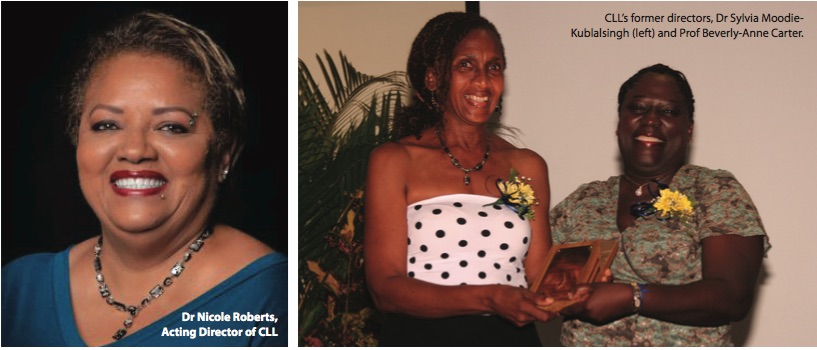
“Prior to the pandemic, the CLL was a really active hotspot for students,” says Dr Roberts, who assumed the position of Acting Director in June 2022. “It was a centre for not just language classes, but also a hive of cultural activities and a meeting place for students. There were films and other cultural activities going on pretty much every week in semester. There was literally a buzz at the CLL at all times.”
As pandemic fears subside, the CLL hopes to recover that communal energy.
Yet, so much has changed since the centre’s creation. The 25th anniversary, administrators say, is a good time to take stock of the original mission of the centre, recognising its achievements to-date, and reflecting on its vision for the future. Dr Sylvia Moodie-Kublalsingh, the first Director of the CLL, is an ideal person to do that reflecting.
“Professor Compton Bourne [then Campus Principal of UWI St Augustine] called me and asked if I would be interested in heading a new language learning centre,” recalls Dr Moodie-Kublalsingh. “I was happy. I have always wanted to teach languages to anyone on the campus.”
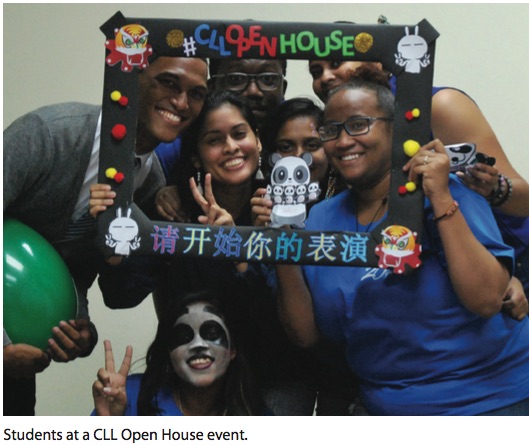
Initially, classes were held at the Learning Resource Centre (LRC). The full-time staff, she says, consisted of “myself and a secretary”. The centre was originally going to be named the Language Learning Centre, but because the acronym “LLC” would have been too close to “LRC”, she decided instead to name it the Centre for Language Learning.
CLL in those earliest days taught Spanish and French before quickly expanding to include Hindi and German (1998-1999). Italian was added in 2001, and by 2004, the CLL incorporated Japanese, Mandarin Chinese, Portuguese and English as a second language (ESL). Arabic was introduced in 2005, and Yoruba classes began in 2011. Russian (2014) and Korean (2016) were the most recent of the CLL’s course offerings.
“My most memorable moments were teaching the students,” Dr Moodie-Kublalsingh said of those days.
Under her tenure, she cemented the national niche for the CLL as a centre of excellence in foreign language teaching and learning, yet she remains humble.
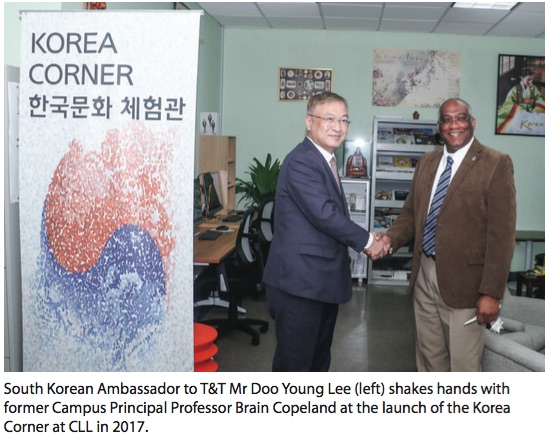
“I like anonymity. I like to be in the background,” the now retired educator says. “I am very Christ and God centred, and I think that everything that I do is being done through me by God.”
A language teacher since her start at the St Augustine campus in 1970, she has written several books, including the Viva! Series for secondary school Spanish.
Dr Moodie-Kublalsingh ensured that Trinidad’s “heritage” languages were taught at the CLL. She called for a revival of a multilingual Trinidad (Moodie-Kublalsingh, “The Teaching of Hindi”: 142) because ancestral languages such as Portuguese or Arabic are part of our heritage.
Professor Beverly-Anne Carter became the second director of the CLL in August 2005.
“My primary research area is Learner Autonomy,” says Prof Carter, who recently received her professorship after 17 years as the leader of the centre. “I have always been very interested in technology applied to language teaching and learning. A context like the CLL seemed ideal to research and practice in those fields.”
Her tenure took the CLL on a more internationalised trajectory. International memberships were created and MOUs signed. The CLL joined the Association of Departments of Foreign Language (ADFL), the Association of University Language Communities (AULC), the European Confederation of Language Centres in Higher Education (CERCLES), the Centre for Language Education and Cooperation (CLEC) and the Japan Foundation Nihongo Network.
With support from Hanban, the Confucius Institute was opened in 2013, and the Korea Corner in 2017, inside the Self-Access Facility. The CLL became the venue for the International English Language Testing System (IELTS) in 2012, CELTA in 2015, the Diploma de Español como Lengua Extranjera (DELE) test in 2013, and the Japanese Language Placement Test (JLPT) in 2019. In 2019, the CLL also became the venue for the Annual Japanese Speech Language Contest.
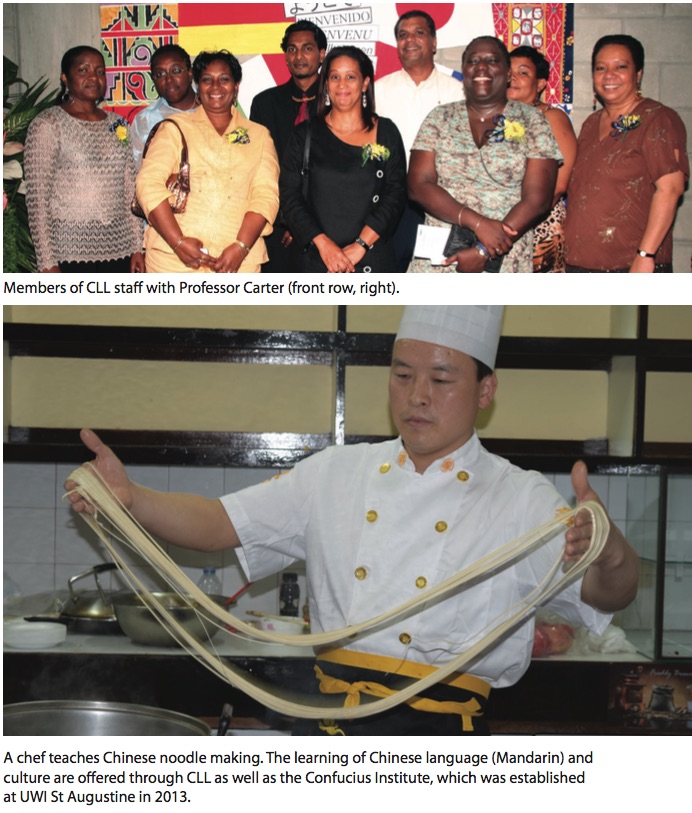
Advances in digital technology, and global access to the Internet and social media are constantly changing the goals and the nature of foreign language education. Thus, Prof Carter ensured that the CLL remained on the cutting edge of technology in education. She encouraged continuous, professional development among all levels of staff, including technical and teaching staff. Teaching staff were afforded training opportunities in digital technologies and innovative foreign language teaching methodologies. She made certain that the CLL’s teaching spaces were equipped with state-of-the-art, technologically-advanced resources.
Prof Carter speaks very openly of the importance of the CLL staff, saying “the day-to-day working with a staff who were generous, supportive, and as invested in the CLL as I was (and to be clear, I am referring here to both academic and ATS staff), meant so much to me.”
She adds, “We were a team wanting to make the CLL a centre of excellence for languages in all regards. I had their backs, and they had mine.”
She also appreciated the added value of foreign language learning in the area of entrepreneurship. Having been awarded TT$500,000 in grant funding in 2013, she and her research team designed five sub-projects, which focused on strategic planning for the local business, education, and tourism sectors.
Now retired, Prof Carter is very optimistic about the future of the CLL and the study of foreign languages in T&T.
“I know a number of young foreign language educators, some of them my former students, who are well equipped to do good work to advance the field,” she says. “Similarly, my academic colleagues at the CLL have much to contribute to enrich our understanding of [language] acquisition in a university context. It’s their turn now.”
As to her own plans, she “has a few commitments to wrap up, but for now I have no plans to embark on anything new in academia. There is life outside the UWIverse. And I really would like to enjoy the gift of unstructured time that retirement affords.”
“As The UWI is currently poised to embark on its revenue revolution, we are convinced that the CLL is well-positioned to support its efforts,” comments Dr Roberts.
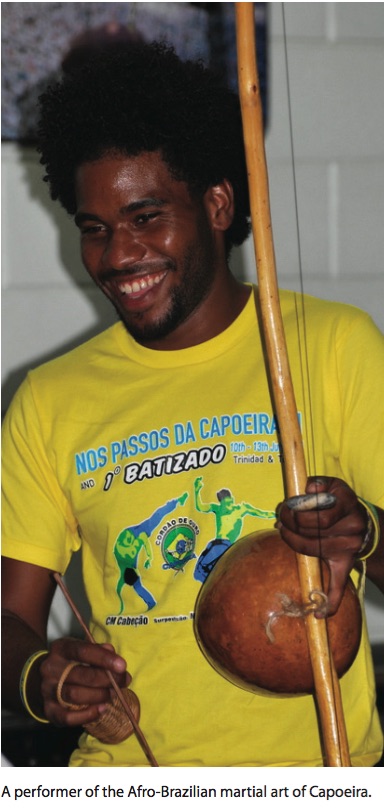
Speaking on the future of the centre, the acting director says that, “nowadays, the study of a foreign language is essential for employability. Hence, beginning in the academic year 2022-2023, The UWI embarked on the phased roll-out of a university-wide foreign language policy.”
This initiative, the result of in-depth internal strategic planning and discussion with regional education stakeholders, seeks to make each graduate “conversation-competent” in a language other than English. The CLL designed and delivered four blended courses in Mandarin Chinese, French, Japanese, and Spanish in September 2022. These are the first blended, foreign language courses at The UWI regionally.
“Only one of these courses is required to satisfy the foreign language requirement,” says Dr Roberts. “However, upon completion of any one of our courses, we are certain that students should be convinced of the value of foreign languages. While fluency cannot be the goal with a one-semester course, our goal is that our students connect on a shared cultural wavelength.”
The CLL continues to offer active language learning through dynamic classes and through cultural material.
“We hope that the initial contact will strike a chord with our learners, leading them to aim higher and reap greater benefits,” says the acting director.
“As we contemplate our 25-year legacy, we look forward to the next 25 years. Our vision? To surpass our record of excellence in the areas of innovative foreign language teaching and learning, research, publications, and entrepreneurship.”
For more information on CLL, connect with them on social at Instagram: @centreforlanguagelearning | Facebook: @clluwista | Twitter: @clluwi | Flickr: @clluwista | YouTube: @clluwista